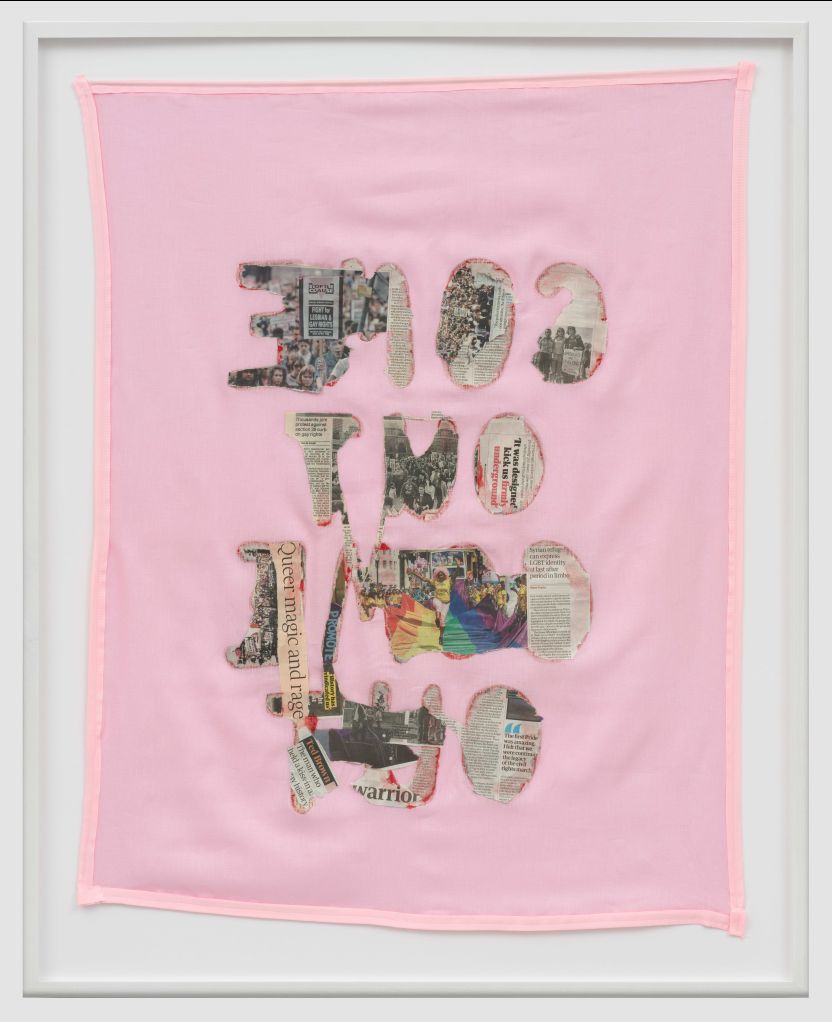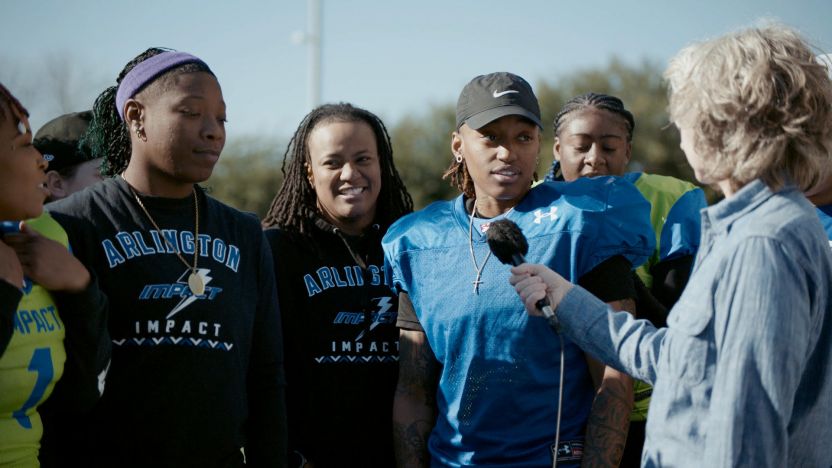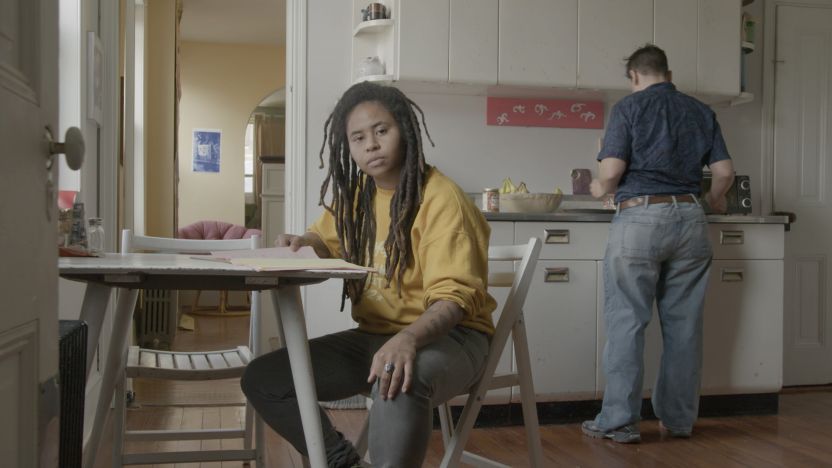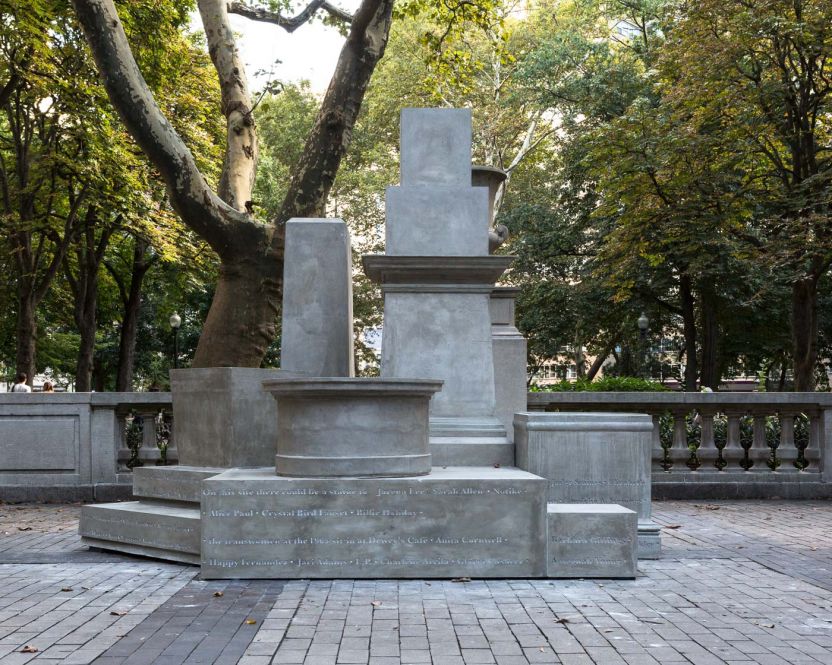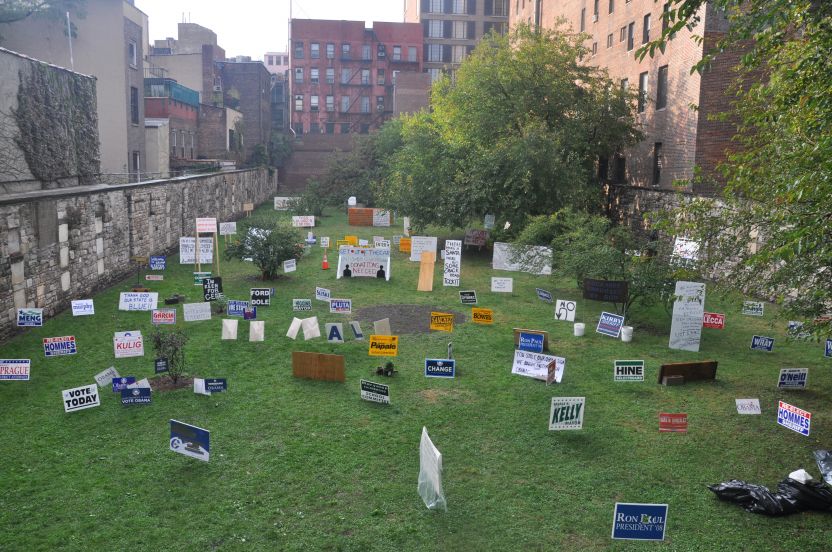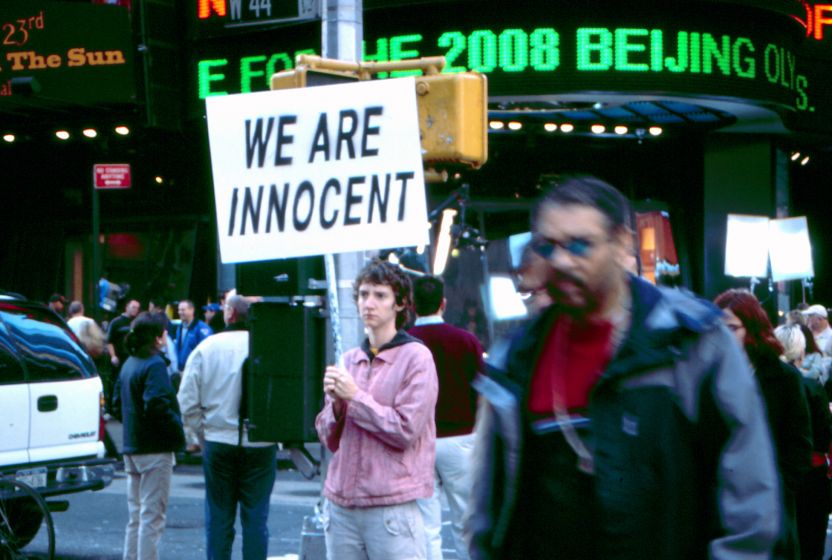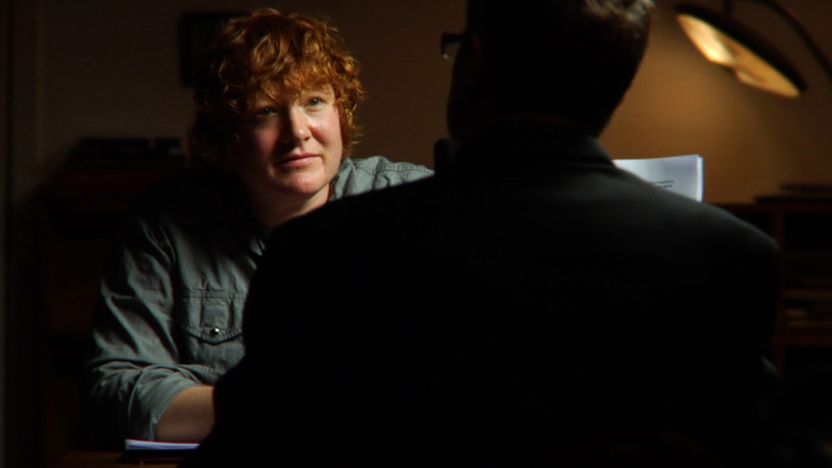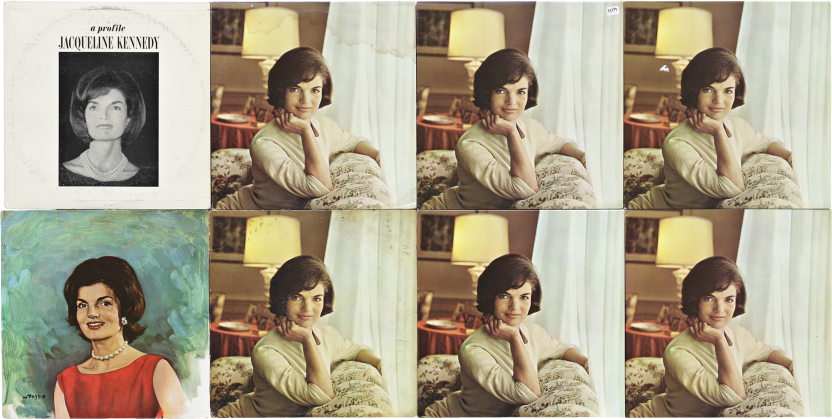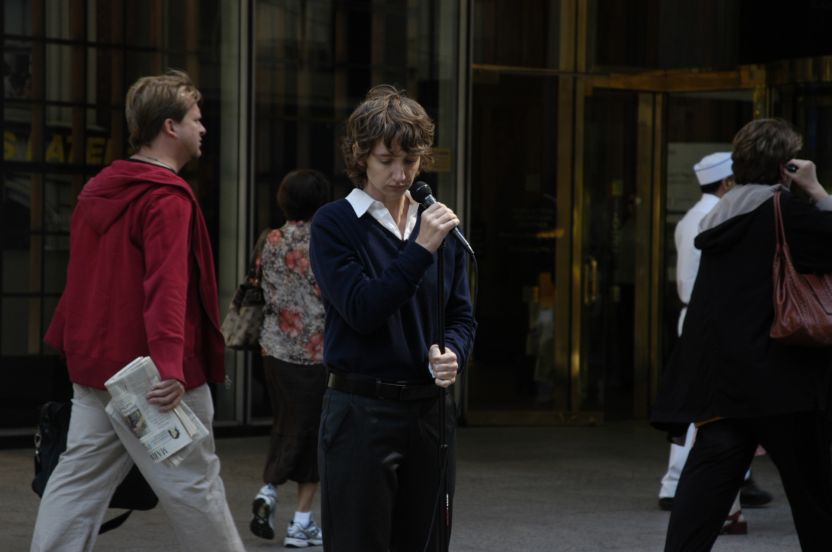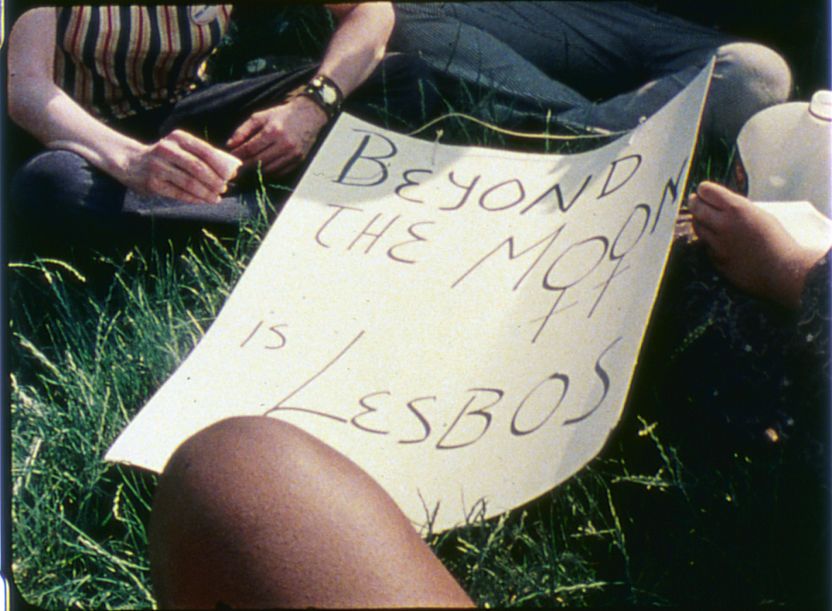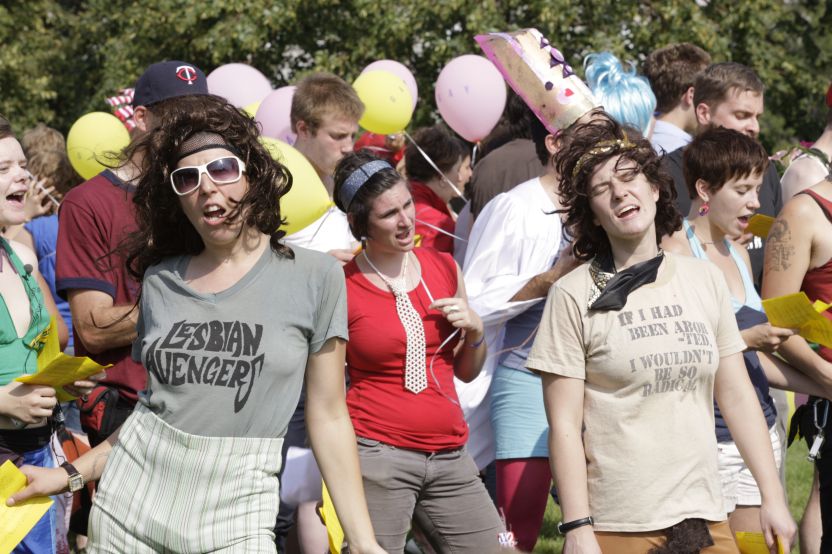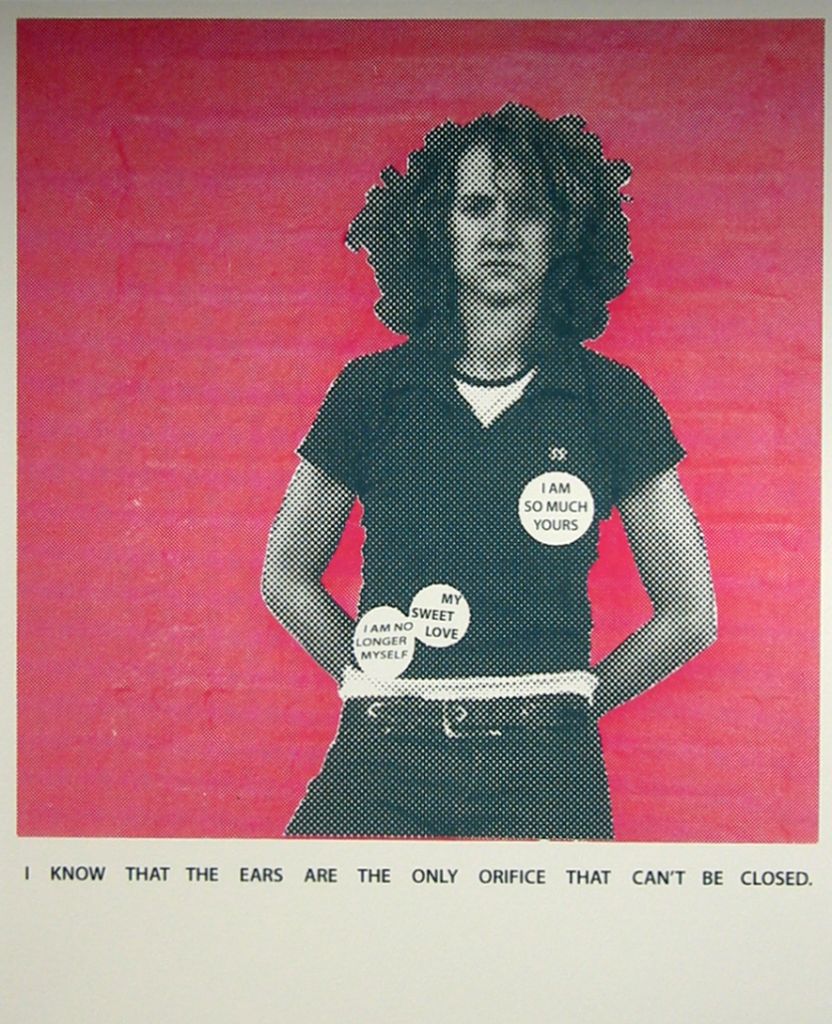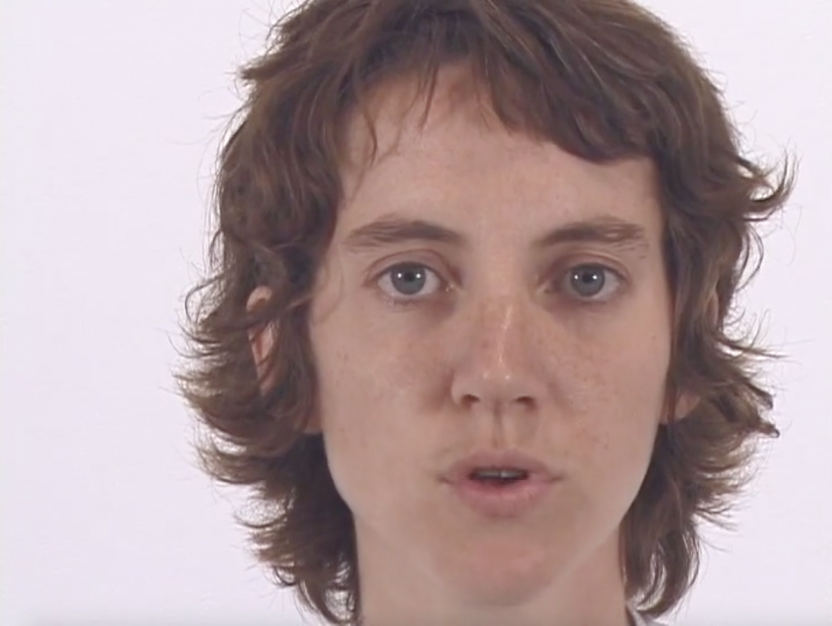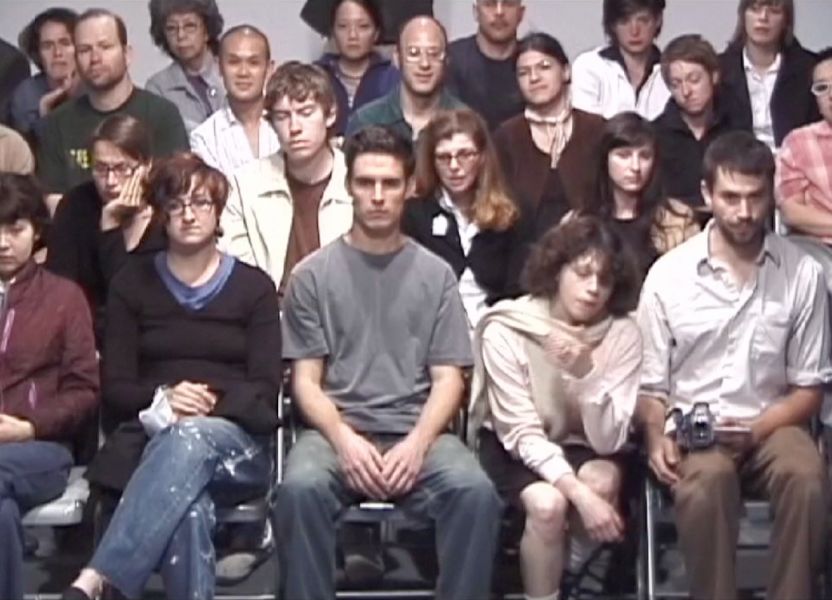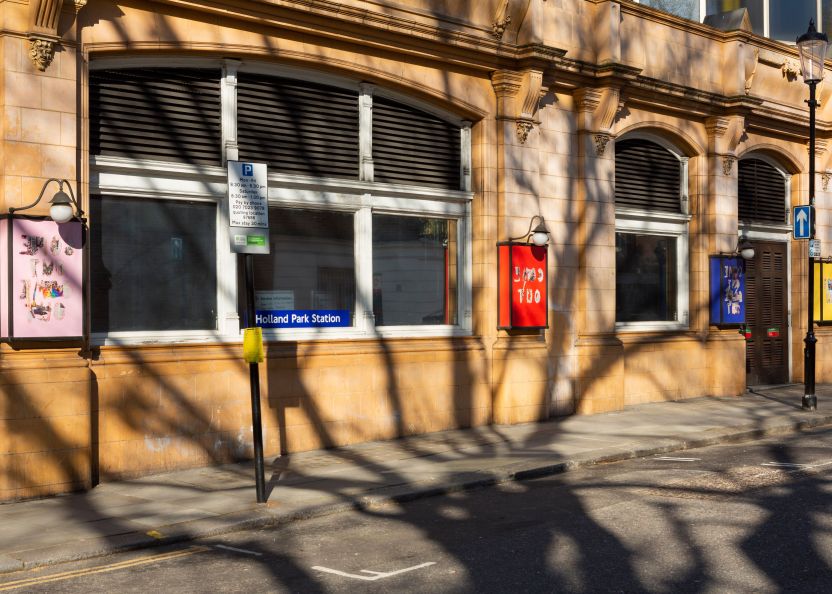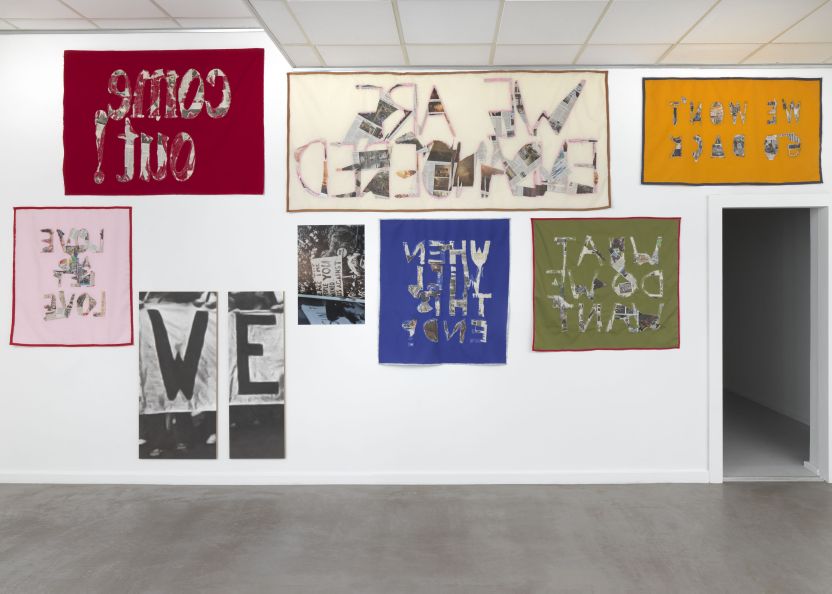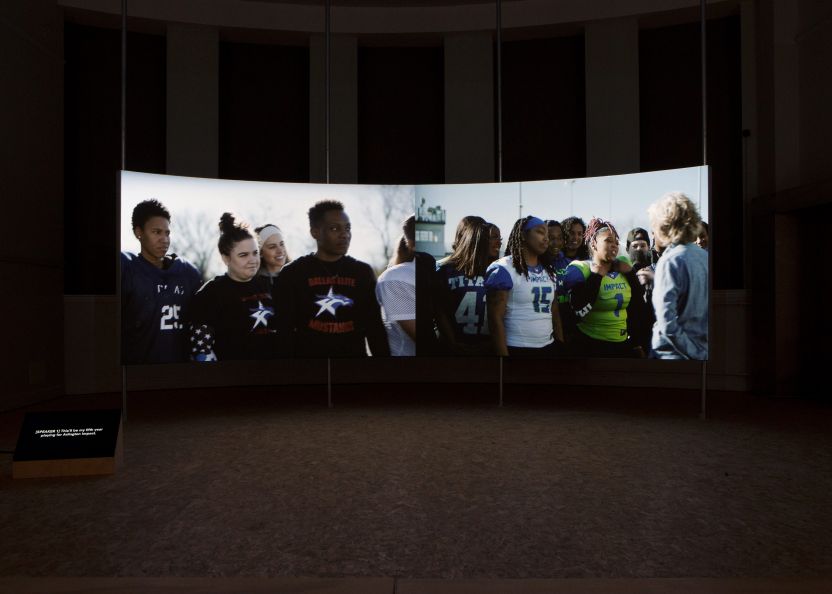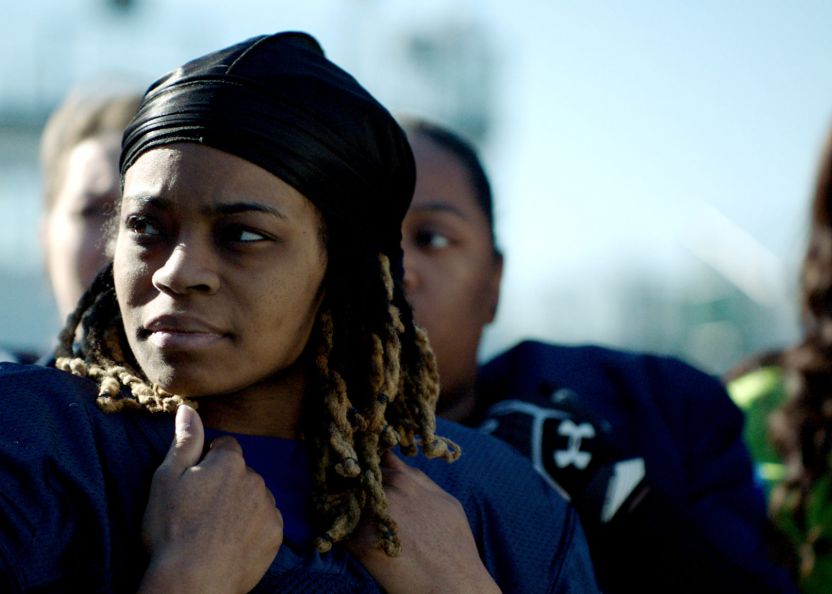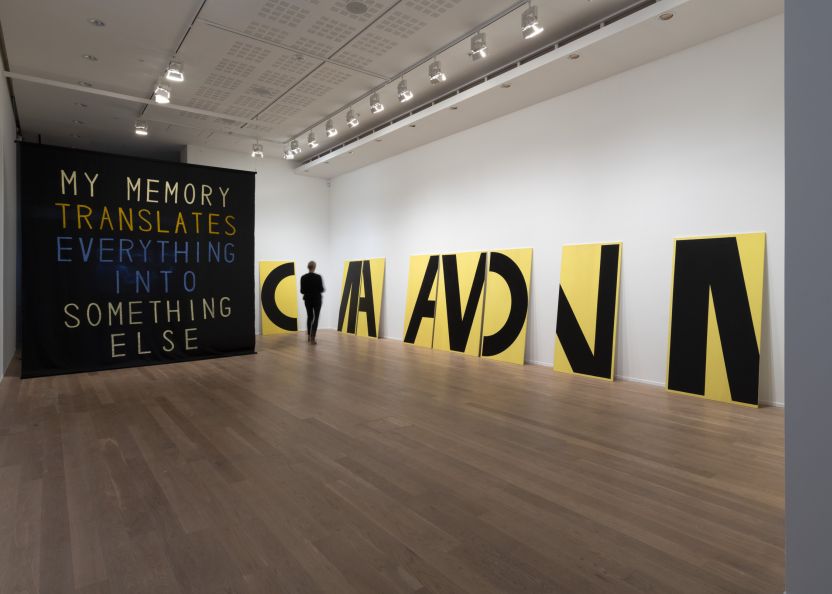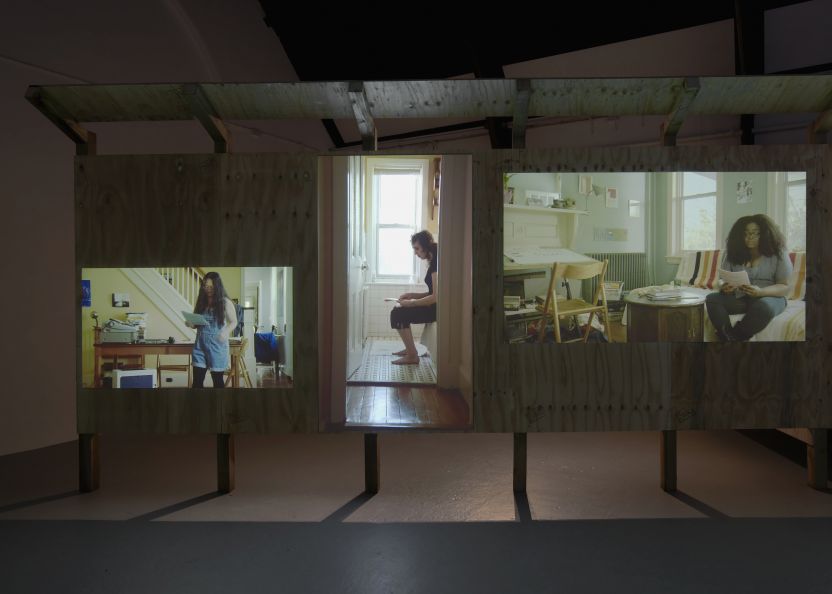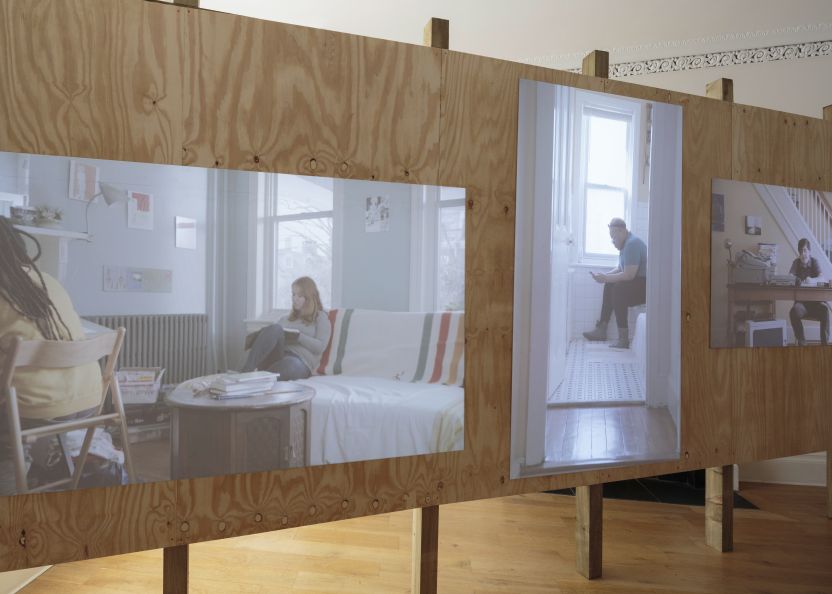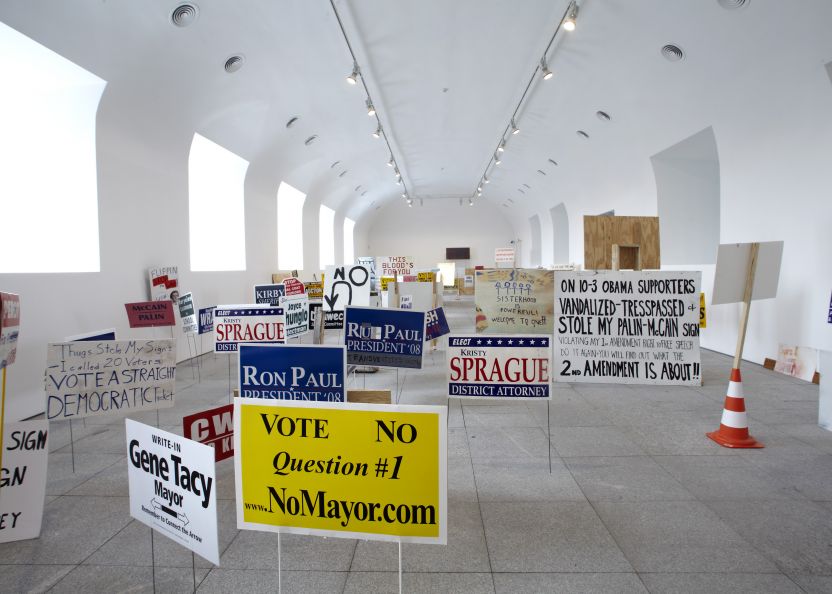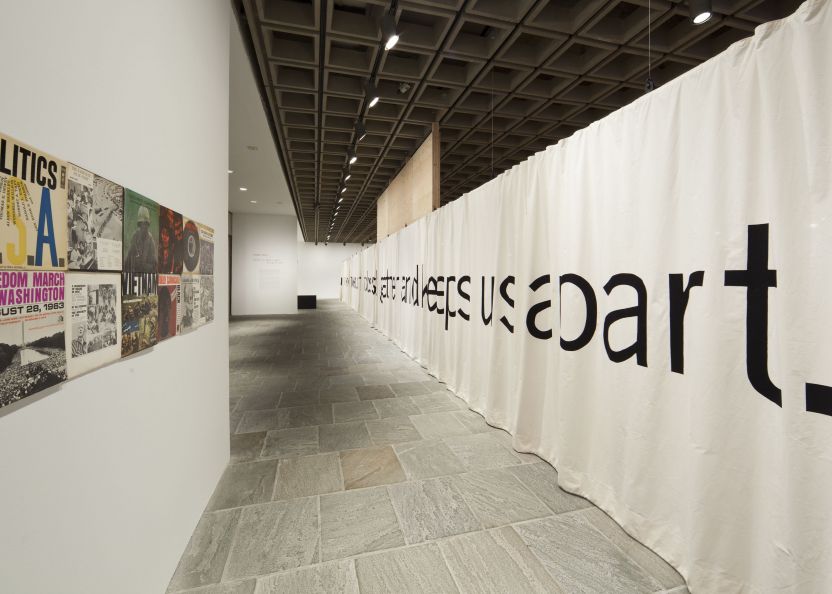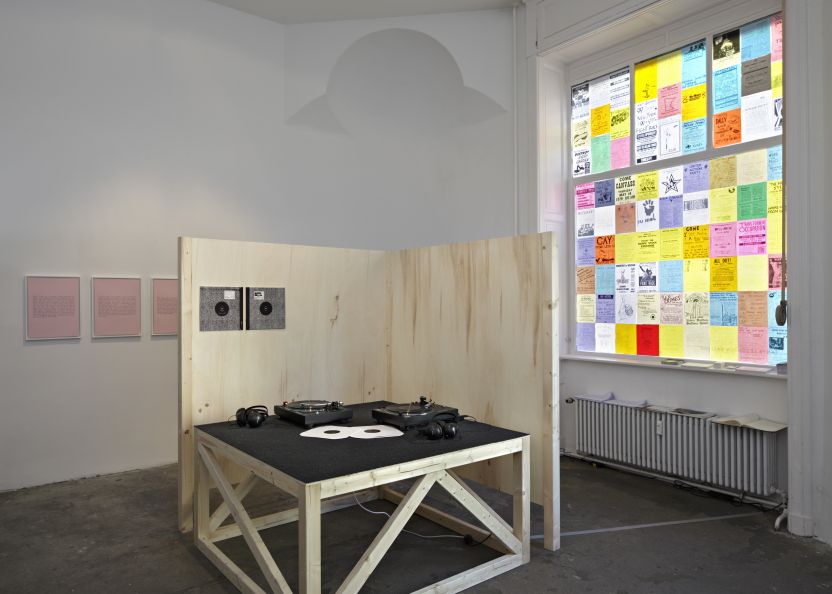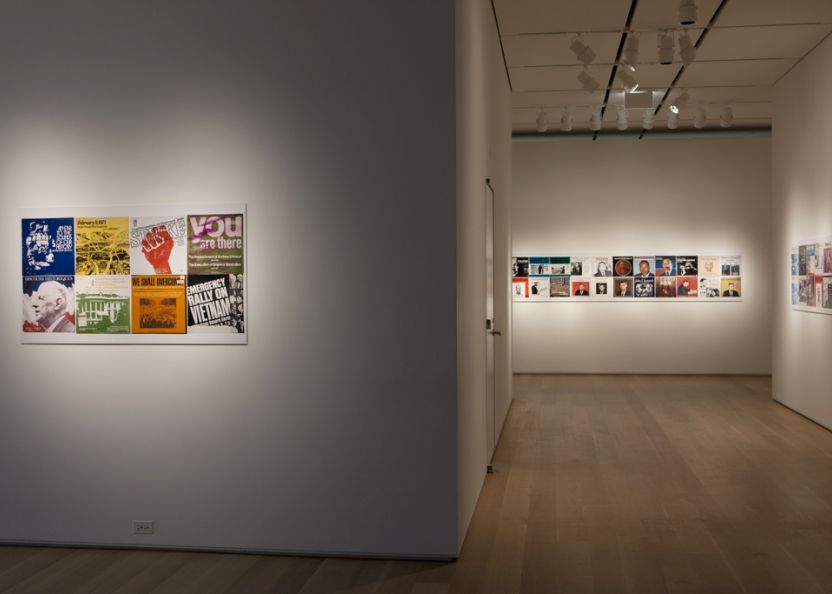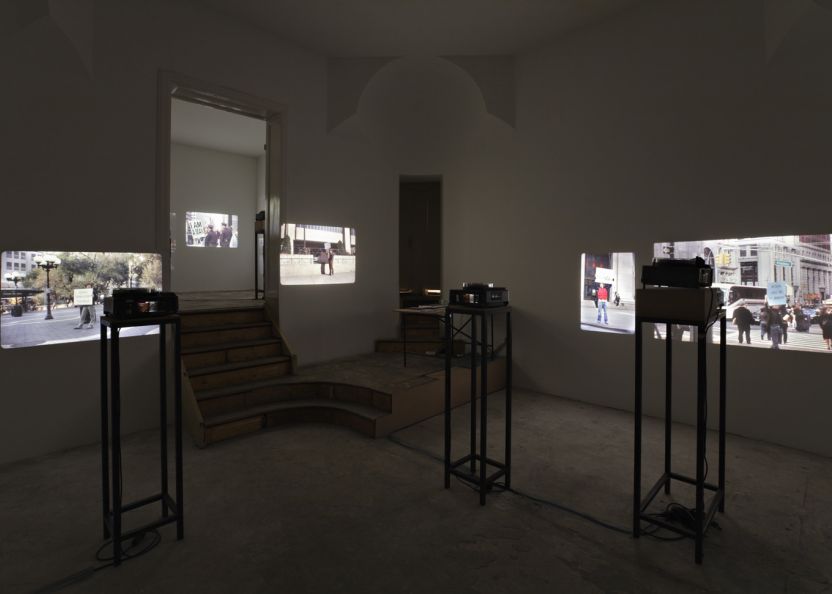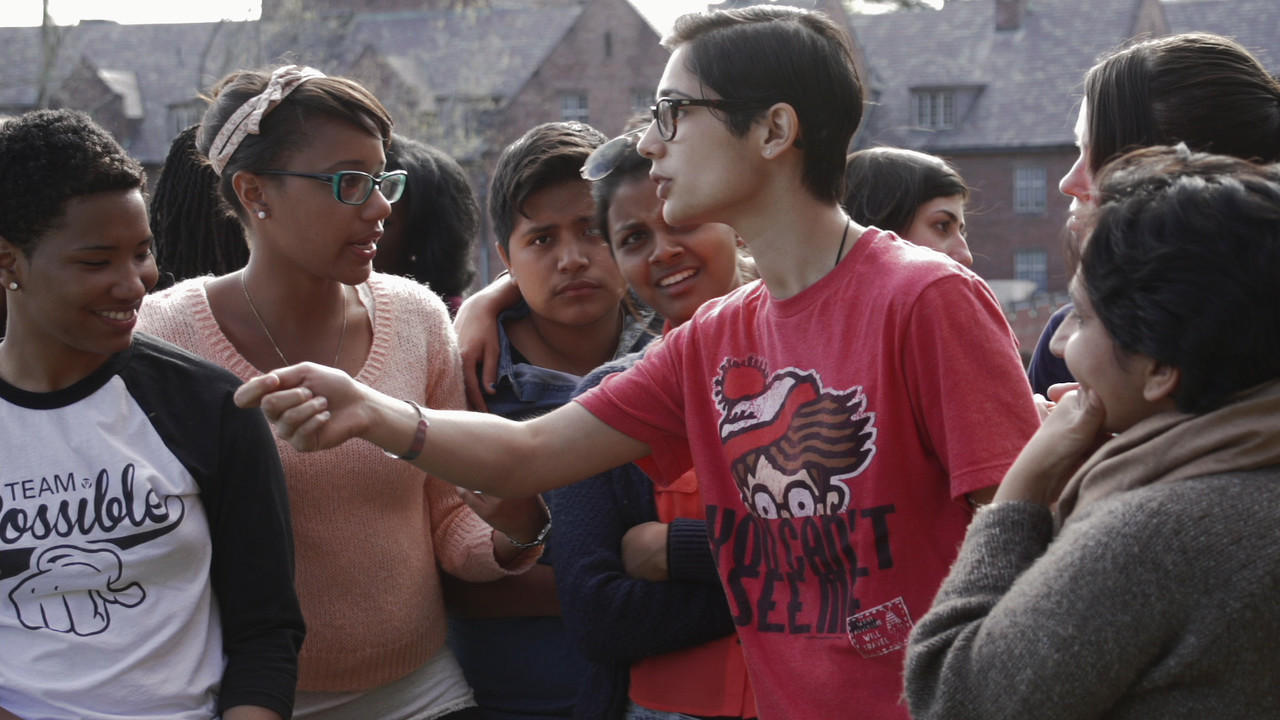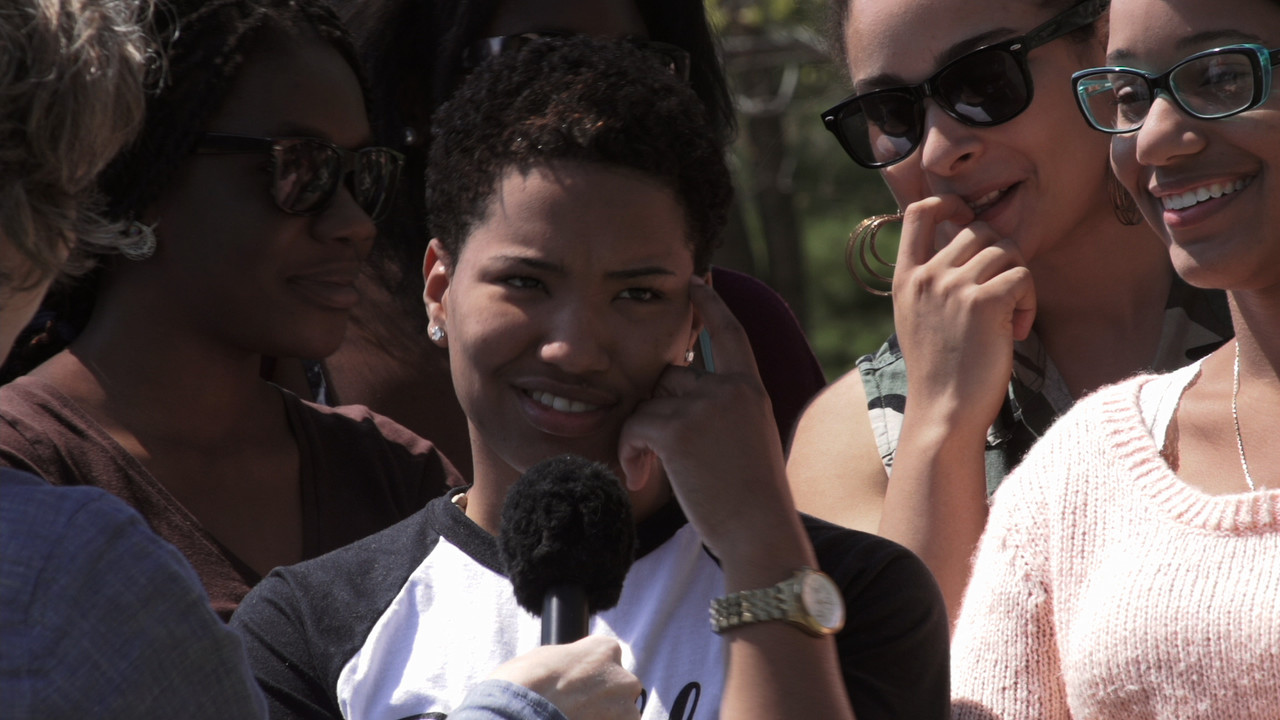Sharon Hayes
Biography
Born 1970, Baltimore. Lives and works in Philadelphia.
Selected Solo Exhibitions
Come Out, Come Out, Art on the Underground, Transport for London
What Do We Want, Neuer Berliner Kunstverein, Berlin
Ricerche, The Common Guild, Glasgow
An Army Of Lovers Cannot Lose, Tanya Leighton, Berlin with Kristina Kite Gallery, Los Angeles
Selected Group Exhibitions
Queer Histories, The São Paulo Museum of Art, São Paulo
Walk This Way, Kunstmuseum Ravensburg, Ravensburg, Germany
Whitney Biennial 2024: Even Better than the Real Real Thing, Whitney Museum of American Art, New York
For What It’s Worth: Value Systems in Art since 1960, The Warehouse, Dallas
Black with love, intact as a flower, Michela Rizzo Gallery, Venice
Allegory of Happiness, Museum of Modern and Contemporary Art of Trento and Rovereto, Trento, Italy
On the Passage of a Few People through a Rather Brief Period of Time, University Art Gallery, University of California, Irvine
It’s Human Nature?, Kunstverein Harburger Bahnhof, Hamburg (forthcoming)
Comizi d’Amore, Georg Kargl, Vienna (forthcoming)
Contemporanea International Film Festival, Turin (forthcoming)
(Wahl-) Familie, Die, Wir, Sind, Kunstmuseum Ravensburg
What is the Proper Way to Display a Flag?, Museum für moderne Kunst, Weserburg
Paint the Protest, Off Paradise, New York
To Begin Again: Artists and Childhood, The Institute of Contemporary Art, Boston
Shifting the Silence, SFMoMA, San Francisco
Performing Past-Present: Transforming Reenactment, Cantor Fitzgerald Gallery, Haverford College, Pennsylvania
A Decade of Acquisitions of Works on Paper, The Hammer Museum, Los Angeles
After August Sander, Museum für Gegenwartskunst, Siegen
Press
- Artnet, March 2024
- Hyperallergic, March 2024
- e-flux, July 2023
- The New York Times, December 2022
- The Brooklyn Rail, November 2022
- Texte zur Kunst, June 2022
- Artforum, June 2021
- Frieze, May 2021
- Texte zur Kunst, December 2019
- Art in America, October 2016
- Aperture Magazine, Winter 2016
- The White Review, May 2016
- Frieze, May 2016
- Artforum, May 2016
- The Art Newspaper, April 2016
- New York Times, September 2014
- Frieze, March 2014
- Mousse, December 2013
- Art Agenda, September 2013
- Art in America, July 2012
- Huffington Post, July 2012
- The New Yorker, July 2012
- New York Times, June 2012
- Frieze, February 2010
- Vmagazine, August 2009
- DB Art Magazine, 2008
- Artforum, January 2008
